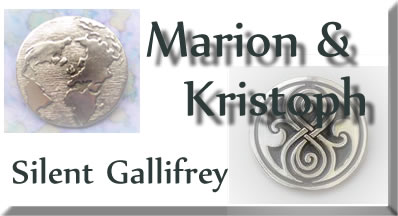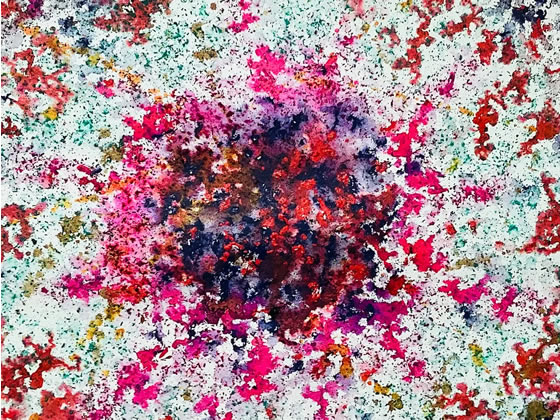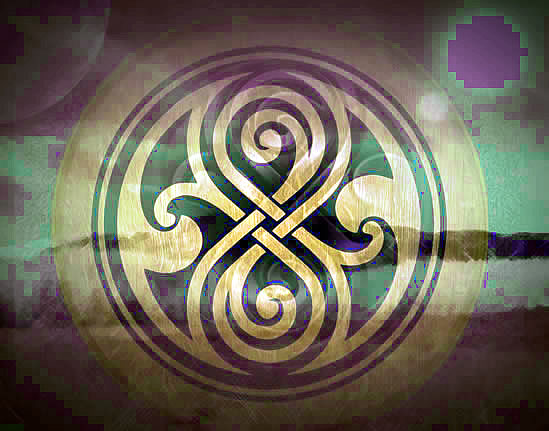

Gallifrey became a silent planet as the weeks passed and the quarantine restrictions affected all aspects of life. Schools were closed. The mines on the southern plain and the ore processing factories shut down. Every social event of any kind was cancelled. Even the funerals of those victims who had succumbed already were held quietly and almost secretly with few mourners allowed. In any case, those closest to the dead were already falling ill themselves. Cremating the dead had become a chore for men who wore face masks and gloves and who completed the task with little ceremony or emotional display.
The worst thing was not knowing what was happening outside of each enclosed quarantine area. The videophone and all other communications were only available to the government and emergency workers. Nobody was allowed to visit anyone.
Nobody smiled. They were all too worried about friends and family they couldn’t contact for information. The servants of Mount Lœng House all had relatives they were concerned for, but there was little to be done. Marion, as Lady of the House was all too aware of their grief.
“Caolin,” she said to their patient and faithful butler. “I am sure Kristoph could make an exception for you if you wanted to see if your brother was well.”
“No, madam,” he answered. “I would not ask that of him. His Lordship has burdens enough. Besides, to have a privilege that is not given to others of my class would be unfair. I am concerned for my brother, and for my father at the Dower House, and for Rosanda’s family in the township, but we must wait patiently just as everyone else is doing.”
Marion tried to persuade him, but he insisted he would not ask such a privilege for himself.
It was the same for everyone, Caretaker, Oldblood or Newblood. Nobody could contact anyone. Marion had a little news from the Capitol through Kristoph’s conversations with Malika Dúccesci, but none of it was particularly reassuring. There were a hundred confirmed deaths now and five hundred people ill. Everyone who was not ill had to consider themselves infected or at risk of being infected. Nobody knew who might succumb next.
Lord Dúccesci was a stoic, upright man who rarely showed emotion. He was an able politician and a competent organiser. He was a good choice to taken on the burden of responsibility in the stricken Capitol for all of those reasons.
But when he reported that Broen’s Plague had struck his own household and his wife was feverish and ill along with several of the servants even he could not disguise his emotions.
“I cannot even be with her,” he said. “I am in the Citadel, monitoring the distribution of medical supplies. The Citadel is uninfected thus far. If I return home even for a few minutes, I cannot come back here and continue my work. I must… she must take her chances like everyone else.”
“I am sorry, Malika,” Kristoph told him. “I truly am.”
There were many reasons why Lord Dúccesci and Kristoph were at odds with each other politically, but that didn’t mean that Kristoph’s sympathy wasn’t genuine. It was what he had feared for his own wife since the outbreak began. Malika Dúccesci looked grateful for his words.
“We are all in the hands of the fates,” Dúccesci responded. “And it seems that the fates are cruel just now.”
There was little else to be said. Kristoph closed the call and contacted the man he had placed in charge of Athenica. The quiet city of learning and culture that was capital of the Southern Continent was troubled. Lord Chárr was an academic whose mind was usually on philosophical debates in the forum. Governorship of a city in crisis was not something he ever expected to have thrust upon him, but he had done his best to rise manfully to the situation. He reported that there had been twenty deaths and a hundred people known to be infected. That didn’t seem as terrible as the situation in the Capitol, but that was because Athenica was smaller and less densely populated. It was bad enough.
“The plague originated among Caretakers,” Chárr said. “But it is not confined to their quarter of the city. Two of our most promising astronomers were taken sick while working in the observatory. They are sinking fast.”
“I never expected it to be confined to the Caretaker quarters,” Kristoph said. “If anyone imagined accident of birth was a safeguard against this disease, then they were fools.”
He sighed as he closed that call. Marion went to his side. She had become accustomed to sitting in the study with him when he made these calls, but she kept quiet until they were over, even when the news was distressing. Only when the videophone was switched off would she go to him and offer the little comfort she could give.
“Do you pray?” he asked her. The question startled her. She wondered why he had asked. “On Earth, at times like this, even people who think they don’t believe sometimes do. I often envied them. It must be a comfort to feel there is a deity they can turn to in times of trouble. In these past weeks I have felt that even more keenly. We are such a mighty race, we don’t believe in anything greater than us in the universe. So when we are brought low, as we are now, there is nobody to turn to.”
“I haven’t,” Marion answered. “Prayed, I mean. I didn’t know if I could. I mean… I’m so far from Earth. I don’t know if….”
“Well, I always understood that the Christian God was in all places and heard all prayers, even prisoners in the deepest dungeon. I think we’re not so far away as that.”
“Are you saying you want me to pray?” Marion asked.
“I think we need all the help we can get,” he said. “Not just you and me… but our world, here. If we can’t find the humility, even in our lowest moment, perhaps you can on our behalf.”
Marion thought it was a strange thing for him to ask. It proved above all how low he really was feeling, and her heart ached for him.
“I’ll do that,” she told him. Then she held him in her arms and kissed his cheek lovingly. “I promise I will.”
And she did. But it seemed as if those prayers weren’t being answered. six weeks into the crisis Kristoph received a thoroughly distressing report from a community called Daeo in the far south of the Southern Continent. Daeo was one of the centres of the cúl nut processing industry, key to mass food production on Gallifrey. It was one of the few industries that was still being maintained when mining and ore processing, diamond cutting and polishing, all the industries that the great families of Gallifrey made their fortune from, shut down. Food was being distributed all over the planet as swiftly as possible every day. The cúl nut and its protein rich properties were standing between Gallifrey and starvation.
But the men who arrived in the bulk transporters to collect the food one morning found the smoking remains of a funeral pyre that had to have consumed as many as three hundred bodies at once. The only man alive in Daeo was the factory owner, Sol Luchessa, the second son of a wealthy Newblood House who had made his personal fortune in the cúl nut processing business. He calmly explained that the disease was caused by Caretakers and therefore, to protect the rest of Gallifreyan society he had killed every man, woman and child in the community and burned their bodies.
Of course, he was arrested and confined for his own safety. He would doubtless be judged to be mad when it was possible to conduct a trial. But the terrible incident drew a dark veil over an already dismal week. The news from the Capitol continued to be grim. More deaths, more people taken ill. Marion was reassured to hear that Talitha was recovering from the sickness but four servants of the Dúccesci household had died and all but one young maid who had cared for the mistress were now ill. The same story was reported from many of the houses in the Capitol.
Mount Lœng House was free of the disease so far. There was that much relief, at least. Aineytta put it down to the herbal remedies she made every member of the household drink every day. Marion was made to take four different herbal preparations every morning and two at night. She didn’t mind. They all tasted nice and if they really did help her to stay healthy they were worth it.
Aineytta dosed Kristoph thoroughly every day, too. Even though he never left Mount Lœng House or its environs he worked hard from early in the morning to late at night, truly living up to his role as Lord High President of all the people of Gallifrey. At night he slept soundly, but Marion often heard him call out in his sleep, saying the names of people he was troubled about. When that happened she hugged him tightly and whispered softly to him until he quietened.
As long as he was beside her she knew it was all right.
Then for a long week and a half he wasn’t beside her. Athenica had been free of new cases of Broen’s Plague for a week. There had been only four more deaths, and those who were ill looked as if they were getting better. He thought it safe to go there to consult with the other members of the High Council who were on the Southern Continent. There was hope that the worst was over and they needed to see reports from the medical experts and make decisions about lifting some of the quarantine restrictions. Not from the Capitol, of course. Things were still as bad there as ever. But it was hoped that life on the southern continent might get back to normal, at least.
While that anxious week dragged on Marion sat in the white drawing room most of the time. She had Aineytta’s company and Rosanda, too, and all any of them could think about was how much their world would have changed by the time this was all over.
“So many people have died,” Rosanda said, speaking not of the high society Marion and Aineytta moved in, but the townships and the small Caretaker communities of the plains that her family lived among. “Families will be broken. Businesses will have failed because nobody was able to work and nobody was able to buy anything. It won’t be the same again, not for a generation, at least.”
“It will mend,” Aineytta promised her. “Yes, there will be grief for so many. But we will mend. We will adapt. We will survive as a people.”
“I hope so,” Marion said with a deep sigh.
“If it is almost over, we have one thing to be grateful for,” Aineytta added. She put her hand over Marion’s stomach through her dress. “Three months, now. He’s stronger than we hoped.”
“I haven’t been ill. You made sure of that. The baby is fine.”
“We must not take any chances, all the same,” Aineytta said. “You should keep taking the tonics. We have to take care of you above all. Nobody even knows how Broen’s Plague might affect you. The disease is unknown on Earth. I have been so afraid for you, my dear.”
“Perhaps our baby may be the bright spot on the horizon when all of this is over,” Marion said.
“Perhaps,” Aineytta agreed. She said nothing more about that. She didn’t trust herself to say anything. She just put her trust in her own skill with medicines to keep the hope alive.
Then Caolin rushed into the drawing room looking thoroughly disconcerted. That was enough to warn all three women that something was wrong. Caolin was always cool and calm and professional when he entered any room of the house.
“Madam,” he said to Aineytta. “His Lordship is home, but he is ill. You must come….”
Aineytta rose to her feet at once. Marion tried to follow her.
“No,” she insisted. “No, Marion. If Kristoph is infected you must stay away from him. Remain here with Rosanda. Don’t try to see him. Let me take care of him.”
Rosanda put her hand on Marion’s arm to restrain her as Aineytta hurried after Caolin. Marion stood silently for a moment then let herself be guided back to the sofa. She felt as if she was in a dream, a bad dream she desperately wanted to wake up from.

 |
 |
 |